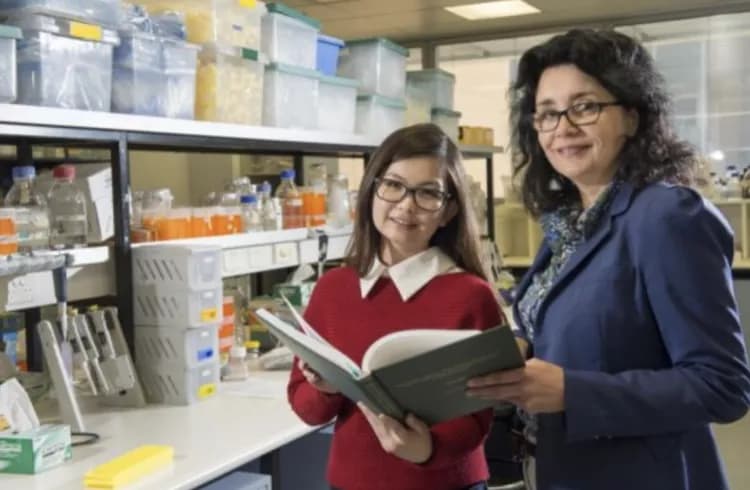
Radical Research Raises Hopes For Eye Disease Treatment For Premature Babies
Ground-breaking research by Monash University scientists has demonstrated the previously unknown existence of a disease-fighting immune cell in the eye and points to potential novel ways of treating eye disorders in premature babies and diabetic adults.
The scientists, led by Professor Jennifer Wilkinson-Berka in the Central Clinical School's new Department of Diabetes, were investigating improved ways of treating retinopathy of prematurity (ROP), which occurs in very small, prematurely born babies.
ROP is the main cause of vision loss and blindness in children globally. Current treatment is laser surgery on newborn babies to burn the damaged blood vessels that occur with the disorder, which also damages healthy cells.
The scientists found for the first time that regulatory T cells (Tregs) -- disease-fighting white blood cells -- are present in the retina.
"People thought you couldn't actually have Tregs in eye tissue because the eye, like the brain, has a barrier that stopped them from entering. No one had ever described this before," Professor Wilkinson-Berka said.
"I thought there might be a weakness in the barrier."
The researchers confirmed this using animal models. They then boosted the cells to test whether they could repair damaged blood vessels in the retina and found that ROP was significantly reduced.
The paper is published in the journal, Nature Communications.
Professor Wilkinson-Berka said improving treatments for babies with ROP was increasingly important as technology improved, saving increasingly small babies.
"We're seeing what's called a third epidemic of ROP as premature babies are getting smaller and smaller," she said.
Whereas babies born weighing less than 1500 grams have a 50 to 70 per cent risk of getting ROP, those under 750 grams have a 98 per cent chance they will be affected in varying degrees, she said.
A small clinical study will now be conducted in collaboration with the Royal Children's Hospital and Murdoch Children's Research Institute.
The research could have far-reaching implications for improving eye disease in people with diabetic retinopathy.
"The same set of ideas are applicable," Professor Wilkinson-Berka said.
"An estimated 350 million people in the world today have diabetes and large numbers of these will have diabetic retinopathy."
Research into animal models of diabetes will be conducted in the Central Clinical School and clinical studies in patients with diabetic retinopathy performed at the Royal Victorian Eye and Ear Hospital and Centre for Eye Research Australia (CERA) with Associate Professor Lyndell Lim and Dr Sanjeewa Wickremasinghe, beginning in October.
"My hopes are that this sort of immune system therapy can be given to patients safely. One of the treatments we're investigating is a very safe thing to do. The therapies would not be a cure but would be added to current treatments to further improve them," Professor Wilkinson-Berka said.
Materials provided by Monash University. Note: Content may be edited for style and length.
Disclaimer: DoveMed is not responsible for the accuracy of the adapted version of news releases posted to DoveMed by contributing universities and institutions.
References:
Devy Deliyanti, Dean M. Talia, Tong Zhu, Mhairi J. Maxwell, Alex Agrotis, Jack R. Jerome, Emily M. Hargreaves, Steven Gerondakis, Margaret L. Hibbs, Fabienne Mackay, Jennifer L. Wilkinson-Berka. (2017). Foxp3 Tregs are recruited to the retina to repair pathological angiogenesis. Nature Communications. DOI: 10.1038/s41467-017-00751-w
Related Articles
Test Your Knowledge
Asked by users
Related Centers
Related Specialties
Related Physicians
Related Procedures
Related Resources
Join DoveHubs
and connect with fellow professionals

0 Comments
Please log in to post a comment.